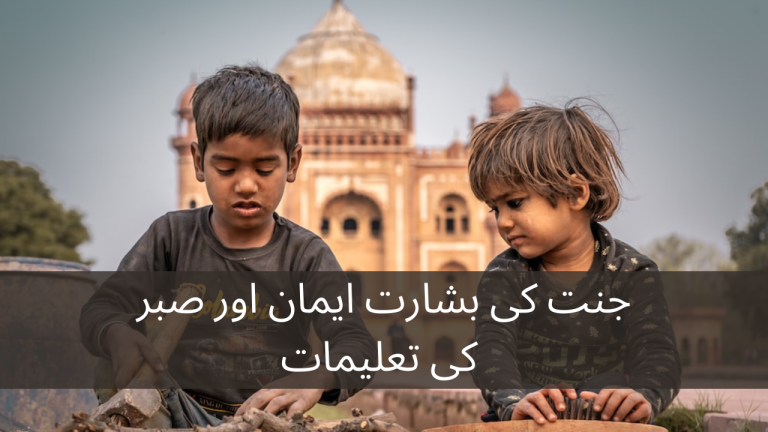Embracing Divine Mercy Lessons from the Repentance Hadith

Embracing Divine Mercy Lessons from the Repentance Hadith On the authority of Abu Hurayrah (may Allah be pleased with him) that the Prophet (ﷺ), from among the things he reports from his Lord (mighty and sublime be He), is that he said
Embracing Divine Mercy Lessons from the Repentance Hadith
A servant [of Allah’s] committed a sin and said: O Allah, forgive me my sin. And He (glorified and exalted be He) said: My servant has committed a sin and has known that he has a Lord who forgives sins and punishes for them. Then he sinned again and said: O Lord, forgive me my sin.
And He (glorified and exalted be He) said: My servant has committed a sin and has known that he has a Lord who forgives sins and punishes for them. Then he sinned again and said: O Lord, forgive me my sin. And He (glorified and exalted be He) said: My servant has committed a sin and has known that he has a Lord who forgives sins and punishes for sins. Do what you wish, for I have forgiven you. It was related by Muslim (also by al-Bukhari).
عَنْ أَبي هُرَيْرَةَ ، رَضِيَ اللهُ عَنْهُ ، عَنِ النَّبَيِّ صَلَّى الله عَلَيْهِ وَ سَلَّمَ ، فِيما يَحْكِي عَنْ رَبِّهِ عَزَّ وَجَلَّ ، قَالَ : أَذْنَبَ عَبْدٌ ذَنْبًا ، فَقَالَ : اللَّهُمَّ اغْفِرْ لِي ذَنْبي . فَقَالَ تَبَارَكَ وَتَعَالى : أَذْنَبَ عَبْدِي ذَنْبًا ، فَعَلِمَ أنَّ لَهُ رَبّاً ، يَغْفِرُ الذَّنْبَ ، وَيَأْخُذُ بِهِ . ثُمَّ عَادَ فَأَذْنَبَ ، فَقَالَ : أَيّ رَبِّ ، اغْفِرْ لِي ذَنْبِِي ، فَقَالَ تَبَارَكَ وتَعَالى : عَبْدِي أَذْنَبَ ذَنْباً . فَعَلِمَ أَنَّ لَهُ رَبّاً يَغْفِرُ الذَّنْبَ ، ويَأْخُذُ بِهِ
. ثُمَّ عَادَ فَأَذْنَبَ ، فَقَالَ : أَيّ رَبِّ ، اغْفِرْ لِي ذَنْبِي : فَقَالَ تَبَارَكَ وَتَعَالَى : أَذْنَبَ عَبْدِي ذَنْباً ، فَعَلِمَ أَنَّ لَهُ رَبّاً ، يَغْفِرُ الذَّنْبَ ، ويَأْخُذُ بالذَّنْبِ . اعْمَلْ مَا شِئْتَ ، فَقَدْ غَفَرْتُ لَكَ . رواهُ مسلم (وكذلك البخاري)
This Hadith is narrated by Abu Huraira (may Allah be pleased with him) and is found in Sahih Muslim. The Hadith highlights the mercy and forgiveness of Allah towards His servants. Here is the explanation of the Hadith in Arabic, Urdu, and English:
Arabic
عَنْ أَبي هُرَيْرَةَ، رَضِيَ اللهُ عَنْهُ، عَنِ النَّبِيِّ صَلَّى اللهُ عَلَيْهِ وَسَلَّمَ، قَالَ: أَذْنَبَ عَبْدٌ ذَنْبًا، فَقَالَ: “اللَّهُمَّ اغْفِرْ لِي ذَنْبِي”. فَقَالَ تَبَارَكَ وَتَعَالَى: “أَذْنَبَ عَبْدِي ذَنْبًا، فَعَلِمَ أَنَّ لَهُ رَبًّا، يَغْفِرُ الذَّنْبَ، وَيَأْخُذُ بِهِ. ثُمَّ عَادَ فَأَذْنَبَ، فَقَالَ: أَيُّ رَبِّ، اغْفِرْ لِي ذَنْبِي، فَقَالَ تَبَارَكَ وَتَعَالَى: “عَبْدِي أَذْنَبَ ذَنْبًا”. فَعَلِمَ أَنَّ لَهُ رَبًّا يَغْفِرُ الذَّنْبَ، وَيَأْخُذُ بِهِ. ثُمَّ عَادَ فَأَذْنَبَ، فَقَالَ: أَيُّ رَبِّ، اغْفِرْ لِي ذَنْبِي، فَقَالَ تَبَارَكَ وَتَعَالَى: “أَذْنَبَ عَبْدِي ذَنْبًا، فَعَلِمَ أَنَّ لَهُ رَبًّا، يَغْفِرُ الذَّنْبَ، وَيَأْخُذُ بِهِ. اعْمَلْ مَا شِئْتَ، فَقَدْ غَفَرْتُ لَكَ”.
Urdu
حضرت ابو ہریرہ (رضی اللہ عنہ) سے روایت ہے کہ رسول اللہ ﷺ نے فرمایا: “اپنا کسی گناہ کیا تو اللہ سے دعا کر اُسے معافی چاہی۔ اللہ عزوجل فرماتا ہے: “میرا بندہ گناہ کر بیٹھا، اور ہوش آیا کہ میرا رب ہے جو گناہ معاف کرتا ہے اور عذاب دیتا ہے۔ پھر وہ آیا اور دوبارہ گناہ کیا اور کہا: ‘ای رب، میرا گناہ معاف فرما۔’ تو اللہ عزوجل فرماتا ہے:
“میرا بندہ گناہ کر بیٹھا، اور اُس نے یہ جان لیا کہ اُس کا رب ہے جو گناہ معاف کرتا ہے اور عذاب دیتا ہے۔ پھر اُس نے تیسری بار گناہ کیا اور کہا: ‘ای رب، میرا گناہ معاف فرما۔’ تو اللہ عزوجل فرماتا ہے: “میرا بندہ گناہ کر بیٹھا، اور اُس نے یہ جان لیا کہ اُس کا رب ہے جو گناہ معاف کرتا ہے اور اُس نے یہ بھی فرمایا کہ تم جو چاہو کرلو، میں نے تمہارا گناہ معاف کر دیا ہے۔”
English
Narrated by Abu Huraira (may Allah be pleased with him), the Prophet Muhammad ﷺ said: “If a servant commits a sin and says, ‘O Allah, forgive my sin,’ and Allah replies, ‘My servant has committed a sin, but he knows that he has a Lord who forgives sins and punishes for them.’
Then the servant commits the sin again and says, ‘O Lord, forgive my sin,’ and Allah replies, ‘My servant has committed a sin, but he knows that he has a Lord who forgives sins and punishes for them.
Then the servant commits the sin again and says, ‘O Lord, forgive my sin,’ and Allah replies, ‘My servant has committed a sin, but he knows that he has a Lord who forgives sins and punishes for them. Do whatever you wish, for I have forgiven you.
The Benefits Of This Hadees
This Hadith carries several important benefits and lessons for believers:
Mercy and Forgiveness of Allah
- The Hadith underscores the immense mercy and forgiveness of Allah. Regardless of how many times a person sins, Allah is always ready to forgive when sincerely asked.
Continuous Repentance
- The Hadith encourages believers to continuously repent for their sins. No matter how many times one may fall into error, the door of repentance is always open.
Awareness of Allah’s Attributes
- The repetition in the Hadith emphasizes the servant’s growing awareness of Allah’s attributes as the Forgiver and Punisher. It highlights the understanding of the relationship between the servant and the Lord.
Encouragement to Seek Forgiveness
- The Hadith motivates believers to seek forgiveness actively. It shows that Allah appreciates and responds to the sincere repentance of His servants.
Freedom through Forgiveness
- The concluding statement, “Do whatever you wish, for I have forgiven you,” signifies the freedom granted to the repentant servant. It emphasizes the liberating effect of divine forgiveness on the believer.
Hope and Optimism
- The Hadith instills hope and optimism in the hearts of believers, reassuring them that no matter how many mistakes they make, Allah’s forgiveness is greater, provided they sincerely seek it.
In summary, this Hadith teaches believers about the boundless mercy of Allah, the importance of continual repentance, the awareness of Allah’s attributes, and the liberating power of divine forgiveness. It serves as a source of comfort, hope, and encouragement for those seeking to improve their relationship with Allah.
Conclusion
This Hadith illuminates the boundless mercy of Allah, encouraging believers to persistently seek forgiveness. It emphasizes the transformative power of repentance, fostering a deep awareness of Allah’s attributes.
The narrative instills hope, assuring believers that sincere repentance leads to divine forgiveness, regardless of the frequency of one’s errors. Ultimately, it underscores the liberating and hopeful message that Allah’s mercy surpasses human shortcomings, allowing believers the freedom to strive for righteousness with confidence in His forgiveness.





